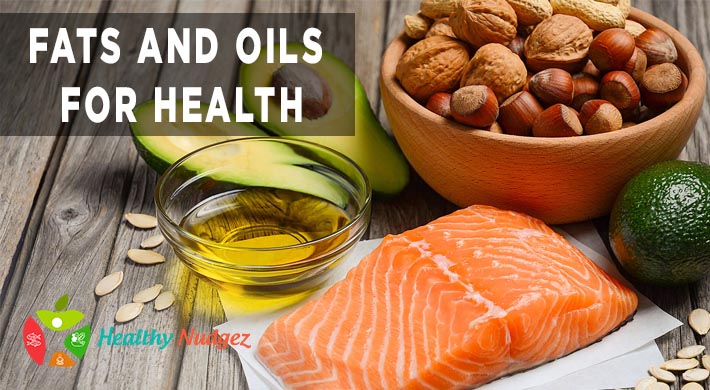Why are Oils Important and Choosing the Right fats and Oils for Health
Over the years there has been a considerable debate regarding the type and amount of fats and oils to be used in diet and their role in development of chronic diseases and weight management. Despite the controversies associated with consumption of oils and fats, it is important to note that these are believed to be essential nutrients. Besides being an essential nutrient for providing energy, fats and oils are important for many critical functions of the body such as absorption of fat soluble vitamins; are an important substrate for synthesis of many hormones especially steroid hormones, such as oestrogen, progesterone and testosterone; form protective layer around vital organs, brain and the retina of the eye are very rich in fat and fats are important for the integrity of all cells in the body. Apart from this cholesterol, which a type of fat has role in the production of Vitamin D in the body, adrenal hormones and bile.
Although, fats are essential for many of the essential body functions, diets that are high in fat have been associated with increased incidence of obesity and increased risk of chronic diseases such as cardiovascular disease, hyper-lipidemias, increased blood pressure and certain types of cancers.
The latest dietary guidelines, however, recommend limiting saturated and trans fats but not so much of total fats.
Hence, while cooking it becomes essential to choose oils and fats best suited for health. This means:
- limiting animal-based saturated fats such as butter, cream, full fat dairy products, etc.
- limiting trans fats such as manmade hydrogenated oils, margarine, etc.
- Using plant-based Mono-unsaturated oils such as virgin coconut oil, peanut oil, rice bran oil, extra-virgin olive oil, etc.
- Using plant-based poly-unsaturated oils such as safflower oil, sunflower oil, sesame oil, flaxseed oil, etc.
The oils that contain more poly- and mono-unsaturated fats are considered healthy oils. Also, certain foods which are rich in these oils such as some oils seeds for example flaxseeds, sunflower seeds, sesame seeds; and nuts such as almonds and walnuts should form part of the daily varied diet rich in fruits and vegetables.
Foods rich in saturated fats, for example red meats, high-fat dairy products should be consumed only in very limited amounts or as guided by a nutritionist according to one’s health requirements.

Best ways to use oils:
- Store them for short periods in a cool, dark places in glass bottles or stainless-steel cans.
- Avoid deep fat frying whenever possible instead try shallow frying with lesser quantities of oil.
- Use canola, rice bran or olive oil for high heat cooking, such as frying.
- Avoid overheating oils while cooking.
- Avoid reusing heated oils.
- Avoid use of hydrogenated fats especially for frying and limit use of foods rich in trans fats such as baked foods, pre-packaged and canned foods.
Do not eliminate fats completely from diet as they are important for essential body functions. in an ideal diet about 15-30% of the total calories must come from fats. Use of vegetable oils judiciously along with a varied diet rich in fruits, vegetables, whole grains, nuts and legumes and low in red meats and saturated fats is considered healthy.
Learn more about healthy food choices, diet and nutrition and also to manage weight, from us. For more information and consultations call at 9650180098, 9810181098 or write healthynudgez@gmail.com.

